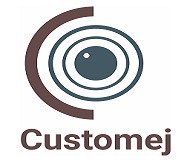You undoubtedly spent a lot of time and money developing your website and other online apps, like most firms nowadays. Your site may have been designed, navigated, and written by a team. If you did all of the above, you invested wisely.
Measure and analyze your website’s KPIs to increase its ROI. Performance measures vary by industry and business type. How do you choose KPIs for your business?
Key metrics for website performance measure aspects that affect a company’s bottom line. They vary by industry and organization and can evaluate several business aspects. KPI metrics can measure website performance. With so much data, choosing KPIs can be intimidating. You may identify your website’s strengths and weaknesses by closely monitoring the following important performance measures.
-
Assess The Audience
Audience reach and impact are crucial website metrics. Google Analytics or another analytics tool can track visits. You’ll need to track the number of visits (Google Analytics calls these “sessions”), unique visitors (“users”), and new vs. returning visitors to your website each day. Measure users and sessions monthly, quarterly, and annually to see if your audience is increasing and how fast (or slowly). New and recurring users are essential, but the exact numbers vary by industry, goals, and more. Returning users imply brand awareness and potential purchase.
-
Traffic Source Analysis
It’s crucial to track how users get to your website as well as the number of visits. Google-sourced? Social media marketing? Directory? Email blast? PPC ads? What keywords bring customers to your site?
Google Analytics automatically segments users by demographics, geography, interests, traffic channels source/medium, referrals, and more. Analyzing traffic sources and audience behavior helps you understand potential clients and optimize your marketing.
Traffic sources are:
- Organic — Keyword and business name-driven traffic.
- Referrals – Website traffic from linked sites.
- Direct – Visitors who type your specific URL into their browser.
- Email marketing links increase traffic.
- PPC, retargeting, and other paid traffic.
- Social media – Traffic via social media links or adverts.
-
Track Bounce Rate And Average Session Time
Users who stay on your site longer are more likely to convert. Bounced visitors are unlikely to return or convert. If a business or customer finds your website through a digital ad, email marketing campaign, or keyword search, they expect to locate a specific medical item you sell. Users are less likely to bounce from a medical device website optimized for industry keywords.
If your website is relevant, user-friendly, and easy to browse, users will stay longer and read more pages. The longer you can keep them on your site, the more likely they are to buy eventually. Lower bounce rates and longer session lengths improve Google search engine rankings, making your website more likely to be found.
-
Track Conversions
Once you know how many users are visiting your site, how often, where they’re from, and how long they stay, you need to figure out what they’re doing. Joining your newsletter? Downloading? Quote? Mailing? Inaction?
Site traffic is half the battle. Clear call-to-actions (CTAs) in prominent locations on your site will boost conversions. If you have a page about a medical device’s benefits, you may want to urge visitors to “Learn More,” “Request a Quote,” “Contact Us,” or “Download” content like an e-Book or whitepaper.
Secure Guest post sites from high-authority websites to improve your SEO and rankings. Boost your brand’s exposure, drive more traffic, and enhance your website’s visibility for long-term digital success.
-
Cost And ROI
The most crucial KPIs are conversion cost and ROI. If your conversion costs exceed your profits, you have a problem. You may be breaking even. By tracking and evaluating all of the other KPIs for your website described above, you can discover how to boost earnings by modifying these performance measurements. KPIs help you determine which parts of your website are working better. Know some KPI warning flags. Tracking and analyzing data is easy with the correct website performance tools and/or expertise.




